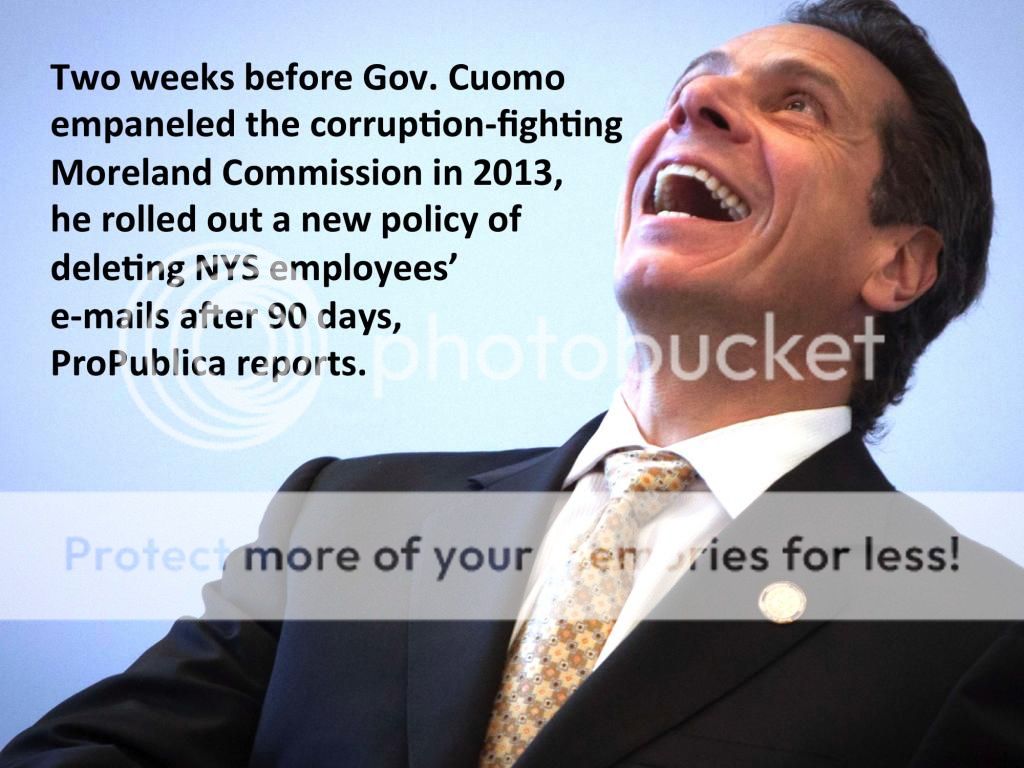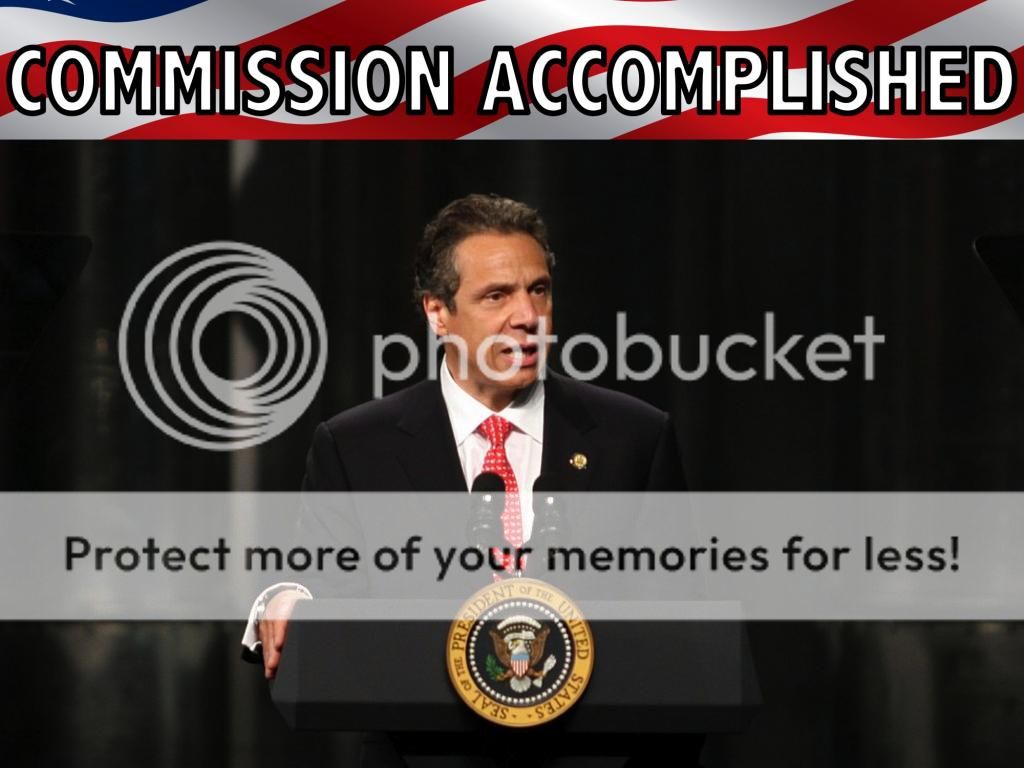|
Minority support for de Blasio is tenuous, at best, because of the political machinations used to win over the Black vote in last year's mayoral election.
New York City Mayor Bill de Blasio is reportedly fuming that the Rev. Al Sharpton voiced sharp criticisms of the NYPD at the mayor's round table discussion, which was staged last week, The New York Post reported today.
City Hall insiders, grappling with growing minority discontent and criticisms of the mayor over the homicide of Eric Garner at the hands of NYPD officers, are trying to insulate the mayor from minority unrest about the relentless instances of NYPD brutality and the police department's record of intentionally targeting and discriminating against low-income and minority communities.
Two months ago, the last Quinnipiac University Poll revealed that the mayor had lost support amongst White voters and that his sole base of support remained amongst minority voters. Political bloggers have since been predicting that the mayor's regressive appointment of William Bratton as police commissioner, the mayor's embrace of Commissioner Bratton's discriminatory Broken Windows theory of policing, the militarized raids of public housing developments, the endless and sometimes violent police arrests that target people of color seeking public accommodation aboard mass transit, the summer policing offensive ordered by Commissioner Bratton, and recent examples of police brutality, including the choking homicide of Mr. Garner, would cost the mayor popularity amongst minority voters. This appears to be coming true.
That Rev. Sharpton has moved from an obedient supporter of City Hall machinations to squash minority discontent to becoming a vocal critic of the de Blasio administration's handling of the community anger arising from the long, over-due overhaul of the NYPD, shows that even some of the mayor's most visible "Yes Men" may be distancing themselves from the mayor. It's been reported that the mayor wants to take a centrist approach to policing that still defends aspects of the NYPD's tactics that voters find brutal and discriminatory, a tortured position that critics believe is the mayor's payback to wealth real estate developers, who view Broken Windows policing as a key driver of gentrification.
For the mayor, the political ramifications of fraying minority relations are fraught with consequences. If he loses support amongst minority voters, some political bloggers believe that he will become a lame duck, one-term mayor. Mayor de Blasio has been caught unawares, because the mayor, advised by a team of tone-deaf lobbyists and political campaign consultants, were operating under the misconception that they had already instructed the city's minority leaders to toe the party line following the election of the city's first Democratic mayor in 20 years. For instance, when then mayor-elect de Blasio first announced his appointment of Mr. Bratton as police commissioner, the mayor's team of lobbyists worked behind the scenes to strong-arm many of the city's minority leaders to issue to journalists statements approving of Mr. Bratton's appointment as police commissioner in a manipulative, preemptive move to prevent any criticisms of the thin-skinned mayor-elect. The mayor and his advisors were nervous that Mr. Bratton's embrace of the discriminatory Broken Windows approach to policing and past scandals of police brutality would become a source of division, which the mayor's advisors largely succeeded in neutralizing, except for ongoing protests by police reform activists affiliated with the protest group, New Yorkers Against Bratton, which the mayor's operatives have been downplaying -- until the NYPD killing of Mr. Garner opened the public eyes to what New Yorkers Against Bratton had been saying all along : that the mayor was not fully committed to overhauling the NYPD. But manipulating minority leaders into supporting the Bratton appointment wasn't the first time when the mayor and his advisors twisted race issues to his advantage. Let's look back to how race was a factor in the mayor's election.
Mayor de Blasio's police relations round table was limited to only Whites and Blacks. You may not like the reason why : Blacks played an outsized role in the mayor's campaign win.
Political power brokers generally predict spikes in the the percentage of Black voter turn out if enough Black candidates run for office in contested races, creating an advantage for Black-favored candidates. In the last municipal election, the lawyer Ken Thompson, a close friend of Mayor de Blasio, waged a political campaign to unseat Charles Hynes as the Brooklyn District Attorney. Despite Mr. Thompson’s denials, it was widely reported that Mr. Thompson’s campaign was advised by former Brooklyn Democratic Party chair Clarence Norman, with Masa Moore in some other role, meaning that old-line Brooklyn Black leaders were siding with Mr. Thompson's insurgent candidacy to unseat D.A. Hynes. To help Mr. Thompson win, Mr. de Blasio campaigned for him, and Mr. Thompson had the endorsement of the Working Families Party.
As a result of the allegations of prosecutorial misconduct in the Brooklyn District Attorney's office and D.A. Hynes' reputation for refusing to challenge NYPD cases based on the unconstitutional tactic of stop-and-frisk, D.A. Hynes was seen as vulnerable to minority voters. In New York City, the two power centers of Black voting power are Harlem and Central Brooklyn. Whilst Mr. Thompson, Mr. Norman, and Mr. Moore were energizing Black voters to turn out to defeat D.A. Hynes, a potential existed to inflate the pool of minority voters for the primary election, an opportunity that could be exploited by the de Blasio campaign if his advisors could find a way harness a larger minority vote turn-out to his advantage.
Meanwhile, D.A. Hynes was relying on campaign support from Scott Levenson, George Arzt, and Mortimer Matz. One of those advisors, Mr. Levenson, became involved in a conflict of interest during last year's election when it was reported that the lobbying and campaign consulting firm he heads, The Advance Group, was paid to manage Yetta Kurland’s City Council campaign during the same election cycle when The Advance Group was paid to help Corey Johnson, who was Ms. Kurland’s opponent in her City Council race. In last year’s elections, The Advance Group also worked to defeat several LGBT City Council candidates as a backroom favor, the details of which remain undisclosed, to an unnamed political operative to benefit City Action Coalition PAC, a controversial political action committee dedicated to right-wing causes, such as "traditional marriage." The Advance Group gave conflicting statements about the nature of the favor it was doing for the unnamed operative connected to City Action Coalition PAC, first describing the work as a "favor" and then describing its decision as one made in the "heat of the moment," adding that the firm hadn't performed its "due diligence." The New York Times noted that the normally left-leaning firm, The Advance Group, represented candidates "backed by the Real Estate Board of New York and candidates vigorously attacking that board" in last year's election cycle. Although D.A. Hynes had earned the ire of minorities, he was relying upon Mr. Levenson's unprincipled firm as one of the three underpinnings key to his reelection. Mr. Levenson, a longtime advisor to some of the founding leaders and institutions of the Working Families Party, overlaps with Mayor de Blasio's political background, since some of the founders of the Working Families Party have been described to be operatives and organizations with close ties to the mayor.
Mr. Levenson's left-leaning bona fides were all the more incongruent with his firm's representation of D.A. Hynes, since the other key advisor to D.A. Hynes’ reelection campaign was Mr. Arzt, an establishment campaign manager, who is more politically aligned with mainstream Democrats, who can be described as old-guard, whereas Mr. Levenon saw himself as more supportive of "insurgent candidates." Why would the more radical Mr. Levenson work with old, stodgy Mr. Arzt on D.A. Hynes’ troubled reelection race ? Mr. Levenson, with his close ties to the Working Families Party, was advising Mr. Hynes, even though Mr. Hynes’ opponent, Mr. Thompson, had been endorsed by the Working Families Party, another shady arrangement.
In order for Mr. de Blasio to win last year’s mayoral election and prevent a costly and bruising primary-run off election against his rival, Bill Thompson, Mr. de Blasio needed to win the Black vote, and he needed for political operatives loyal to him to take down the campaign of his chief political rival, former Council Speaker Quinn. Separate from The Advance Group's controversial involvement in the take-down of former Speaker Quinn's mayoral campaign, the role of The Advance Group in race politics cannot go unexamined. The winner in the Brooklyn District Attorney race was going to depend on Black voter turn-out, predicted The New York Times. A large turn-out of Black voters, needed by Mr. Thompson, the Brooklyn District Attorney candidate, could conceivably have a positive spill-over effect for Mr. de Blasio’s mayoral campaign, given the close associations the two political races shared. For Mr. Thompson to win, Mr. Hynes' reelection campaign had to be taken down. In the end, the advise and counsel of three seasoned political consultants failed D.A. Hynes.
Against this backdrop, Mayor de Blasio released the political campaign commercial featuring his bi-racial son, Dante de Blasio. The warm and fuzzy campaign commercial resonated with voters, who were looking to turn the page on, I hate to say it, a rich White billionaire, who reprimanded New Yorkers like a nagging nanny. However, the younger Mr. de Blasio's campaign commercial did more for his father : it was created to inspire Black voters to see Mr. de Blasio as one of them, setting the stage for a crafted perception of Mr. de Blasio as having sensibilities of what the minority experience was like in New York precisely because his own wife and children were minorities. This perception would only hold together, though, so long as the machinations that created this perception could hold together.
Mayor de Blasio's support amongst minority voters, critical to his defeat of Bill Thompson in the primary, was made possible by so much background work that Mr. Thompson, the mayoral candidate, was unable to break a tie with Mr. de Blasio in respect of Black voters, according to exit polling results reported by The New York Daily News. During an election when the LGBT community rejected identity politics and voted former Speaker Quinn out of office, Mr. de Blasio was engaged in a war to tug the identity politics strings of Black voters.
Some of the background political operative machinations that helped the de Blasio campaign win the mayorship included having the support of Rev. Sharpton. As was revealed this week, Rev. Sharpton said that he and his supporters “won the election.” Although the Rev. Sharpton framed the win in terms of having brought racial issues, such as the demand to end the police tactic of stop-and-frisk, to the fore, political bloggers could not overlook the fact that the Rev. Sharpton also failed to make an endorsement in last year's mayor's race, a crucial decision that may have cost Mr. Thompson, the mayoral candidate, the race. Returning to the present, this revelation could have only been made possible, because of growing minority discontent over police relations with minority communities in the wake of Mr. Garner's choking death. As the minority community looks to its duplicitous leaders to press the de Blasio administration for an overhaul of the NYPD, as the Rev. Sharpton comes under blowback criticisms from police unions, and as the de Blasio administration contorts itself to continue support of the discriminatory Broken Windows approach to policing, the system is turning on itself in search of a resolution. Only when the system turns on itself can the public expect the press to finally pull back the curtain on the corrupt backroom machinations that drive how politicians manage our government -- and on how complex elections are actually won.
Mayor de Blasio's support amongst the minority community was built upon a foundation of a campaign commercial, which political bloggers across the city believe was tested before focus-groups to craft the most politically-appealing message. Behind the scenes, political operatives loyal to the mayor were counting on each of Mr. Thompson, the Brooklyn District Attorney candidate, to create a spike in Black voters in Central Brooklyn and on the Rev. Sharpton to withhold any endorsement in the mayor's race, striking a blow to the hopes of Mr. Thompson, the mayoral candidate, of receiving the positive impact of the Reverend's endorsement. As the mayor wades through the fallout of relentless NYPD controversies, which the public rightly sees to be race- and income-based, the campaign machinations may give way to a new set of perceptions that the public form of their own accord, meaning that viral social media videos of NYPD brutality and murder will supplant slick campaign commercials in shaping public opinion.
If the mayor really cared about resetting his own minority relations, much less the community relations between minority groups and the police department, he'd end the discriminatory Broken Windows approach to policing, he's replace Mr. Bratton with a police commissioner with real credibility with the minority community, he'd support a federal prosecutor to investigate the homicide of Mr. Garner, and he'd institute the long, overdue police reform recommendations of such esteemed civic reform leaders as Margaret Fung, Michael Meyers, and Norman Siegel, including the call to invite all minorities in the broader conversation about police reform -- as a start.
|
RELATED
Rev. Sharpton Says He’s Earned Right To Advise On Police Policy (CBS 2 New York)
A mayoral summit in black and white : Learn from past efforts to improve cop-community relations (The New York Daily News)
Mayor de Blasio furious that the Rev. Al Sharpton showed him up at City Hall (The New York Post)
To unite communities ravaged by NYPD brutality, mayor turns to anti-choice, anti-marriage equality bigot (The New York Times)

Michael Hayes, LMT, has practiced massage for more than 20 years as a licensed massage therapist in New York City. Flatiron Massage operates its massage studio in the Flatiron District of New York City.
|






